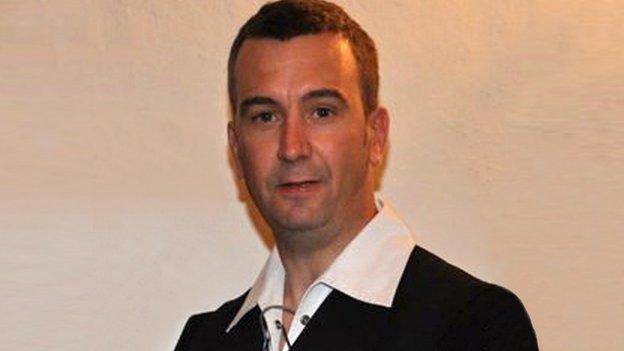David Haines: Daughter vows to recover body of Scots IS hostage
- Published
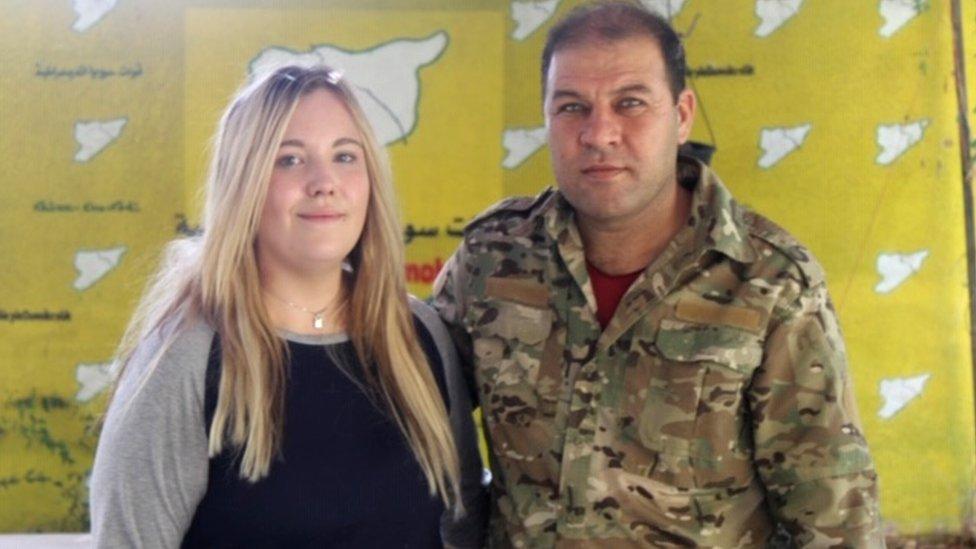
Bethany Haines spoke to officers from the YPG who showed her places her father had been
The daughter of a Scottish aid worker who was beheaded by the Islamic State group in Syria has vowed to return there to recover her father's remains.
Bethany Haines is convinced she has worked out the location of her father's grave near the Turkish border.
David Haines, 44, who lived in Perth, was abducted by IS in 2013 while working in a Syrian aid camp.
His execution was filmed and released in 2014 as part of IS propaganda footage.
He was murdered, with fellow aid worker Alan Henning, by the so-called "Beatles" cell of four British militants.
Earlier this year, the 22-year-old mother-of-one made the journey out to Syria to retrace her father's last movements.
She met aid workers at the camp where her father worked. She spoke to "Isis brides" and saw the spot in Raqqa where her father's executioner Mohammed Emwazi - dubbed Jihadi John - was killed in a drone strike in 2015.
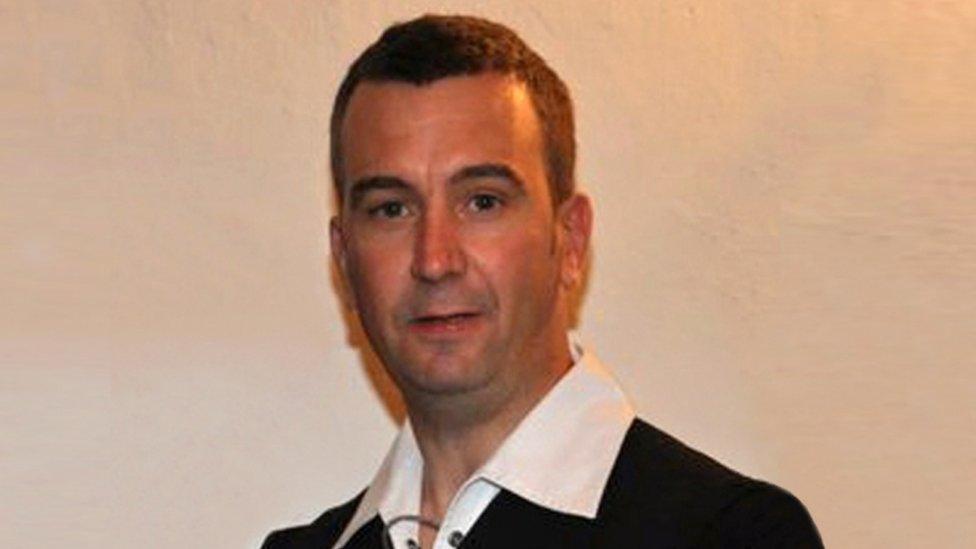
Mr Haines was working for a French aid agency when he was captured by Islamic State militants
She spoke to officers from the YPG - the People's Protection Unit, the home-grown defence force of the Kurdish area of Syria.
However, it was not safe to travel to the spot where she believes her father's remains are buried.
But she has vowed to return until his remains are located. She says she will not rest until she finds out where he is.
Ms Haines told the BBC: "Since the word go, I was never told anything substantial or accurate.
"It made the situation much more difficult, my dad being taken and having to fight for information.
"I watched the videos and I looked at Google maps and I was pretty sure I had found the location from features in the landscape I saw on the video and located on the map.
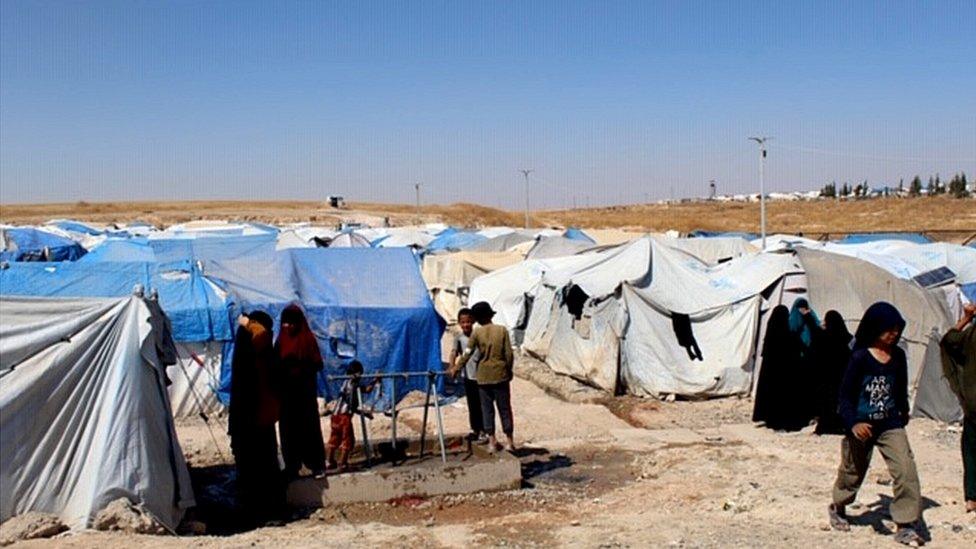
Ms Haines spoke to IS wives at a camp in Syria to understand more about what happened and to ask if they knew anything about her father's execution
"The area they were executed in wasn't entirely safe. But I wanted to go and even see it from a distance to know it was really there."
She said: "I thought it was going to be the last piece of the puzzle to my research and it seemed the logical thing to do, to go out there and speak to people who were involved."
While there, she visited the site of a mass grave and saw Syrian people conducting digs and recovering victims.
It made her feel close to her father.
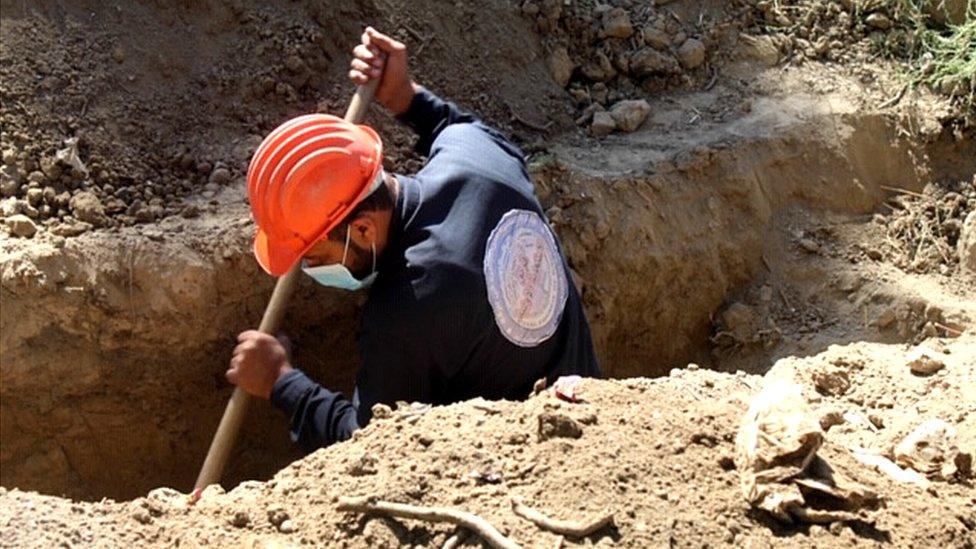
Ms Haines visited a mass grave where Syrian people were helping to excavate and recover other victims' remains
She said: "For that short time I felt like I had him back, I felt so close to him.
"Returning to Scotland, I have found it hard to settle back into normal life. But knowing his possible remains were only a few miles away has been really difficult.
"The story's not finished, I need to go out again, speak to more people and see what they think.
"The YPG agreed with me that he was in that area. I would want to do a dig to see."
- Published9 February 2018
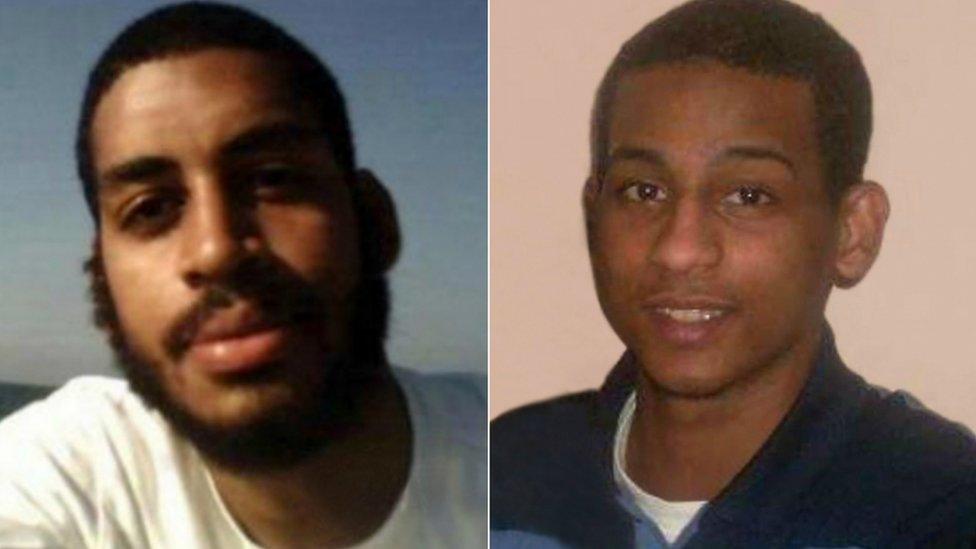
- Published14 September 2014
